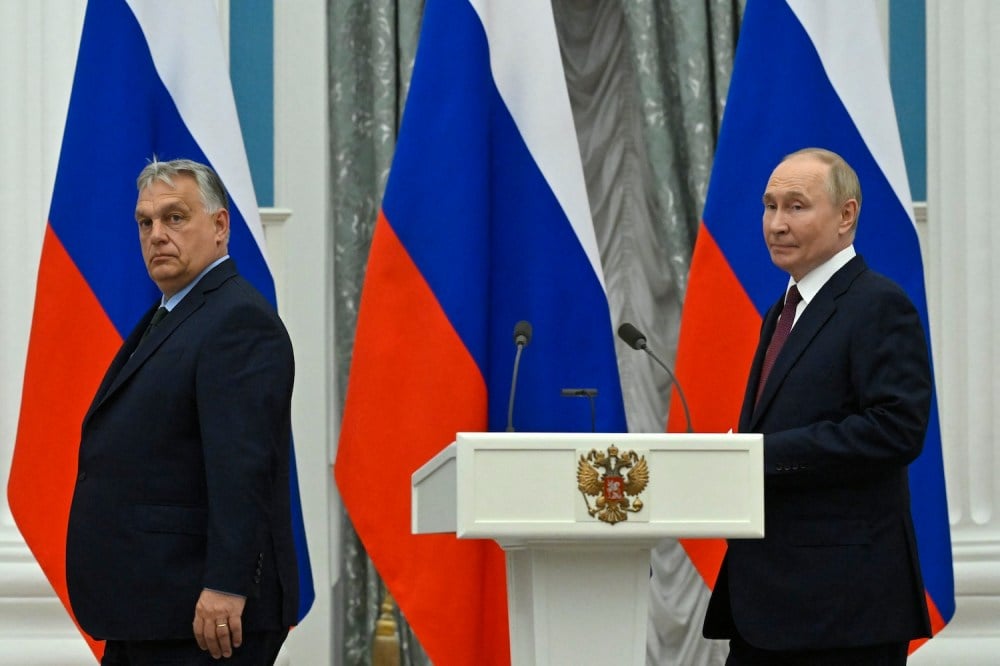Viktor Orban: The Kremlin’s Most Useful Idiot in 21st-Century Europe
In a tableau reminiscent of the “dead souls” from Nikolai Gogol’s classic, 21st-century Russia’s so-called “useful idiots” serve a modern and geopolitically charged purpose. They are key figures in foreign lands bent on advancing Moscow’s interests. Among these figures, Hungarian Prime Minister Viktor Orban stands out as particularly keen to curry favor with the Kremlin.
In a move that raised eyebrows and tempers across Europe, Orban recently took up the rotating presidency of the Council of the European Union—a largely ceremonial role. His first act was a series of visits that seemed more like pilgrimages to authoritarian capitals than diplomatic missions. First, he flew to Moscow, where he parroted Kremlin talking points that undermined the efforts of Ukraine to defend its sovereignty. Then, he headed to Beijing, home to Russia’s main supplier of military technology, further complicating his stance given the European Union’s pressure to support Ukraine against Russian aggression.
Orban’s actions didn’t go unnoticed. EU officials swiftly condemned his apparent allegiance to Russian narratives. In a letter to the real EU president, Charles Michel, Orban claimed that Russia was winning the war in Ukraine so decisively that it was eager to begin peace talks on terms unfavorable to Ukraine. This blatant regurgitation of Russian propaganda did not sit well with the broader EU community, already skeptical of Orban’s controversial rule.
Why does Orban, a member of both NATO and the EU, persist in this pro-Kremlin posture? The answer appears rooted in a mix of historical grievances and a utilitarian approach to energy politics. Hungary heavily relies on Russian energy, including natural gas and nuclear power. However, Peter Kreko, a senior fellow with the Democratic Resilience Program at the Center for European Policy Analysis, points out that Hungary’s energy deals with Russia have not resulted in favorable terms, leaving Orban’s strategy—essentially allying with Putin—yielding few tangible benefits.
The motivations behind Orban’s actions extend beyond energy dependencies. His political philosophy is steeped in anti-Western sentiment and is shaped by a historical narrative that paints the West as a betrayer of Hungarian interests. After World War I, the Treaty of Trianon significantly reduced Hungary’s territory and population, leaving a scar that still influences Hungarian politics today. Orban’s rhetoric often taps into these nationalistic grievances, portraying Russia as a more reliable ally than the EU or the United States.
Orban’s far-right agenda also aligns disturbingly well with Russia’s interests in undermining Western unity. Much like Nigel Farage’s impact on British politics and the far-right movements gaining traction in France and Germany, Orban’s stance threatens the cohesion of these Western alliances. His potential alignment with American far-right figures like former President Donald Trump further complicates matters. Orban’s upcoming meetings with Trump, hot on the heels of his talks with Putin, signal a deeper, transnational far-right collaboration that aims to disrupt established Western policies, including those aimed at supporting Ukraine.
The larger European context shows that Orban’s actions are not isolated but form part of a broader trend of rising far-right sentiments and pro-Russian sympathies across the continent. These developments present significant challenges for EU unity and its collective response to Russian aggression in Ukraine.
As Viktor Orban continues to straddle his allegiances between the West and Russia, the implications for Europe’s political landscape are profound. His actions serve as a stark reminder of the ongoing struggle between democratic values and authoritarian tendencies—a struggle that will define the future of the European Union and NATO in an increasingly polarized world.
For more information on Orban’s recent activities and his influence on European politics, you can visit the official website of the Hungarian Government.
